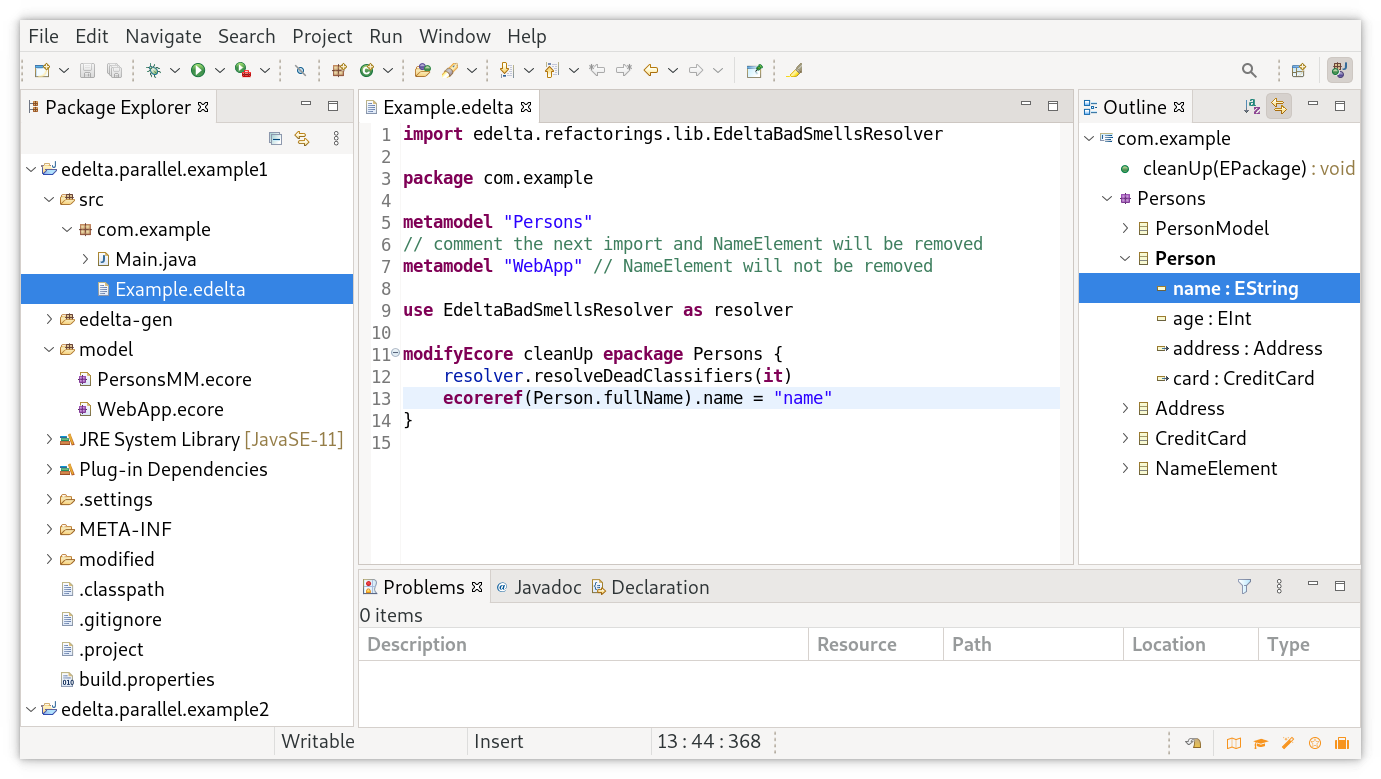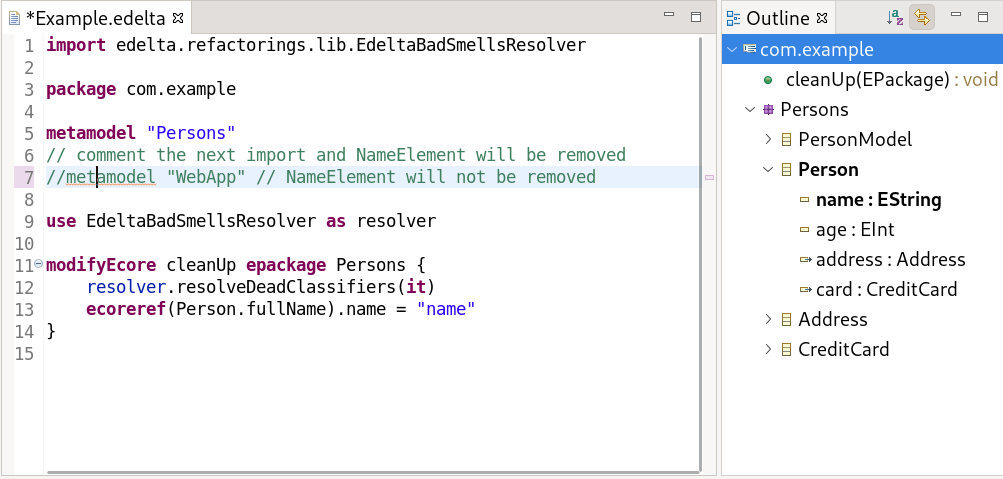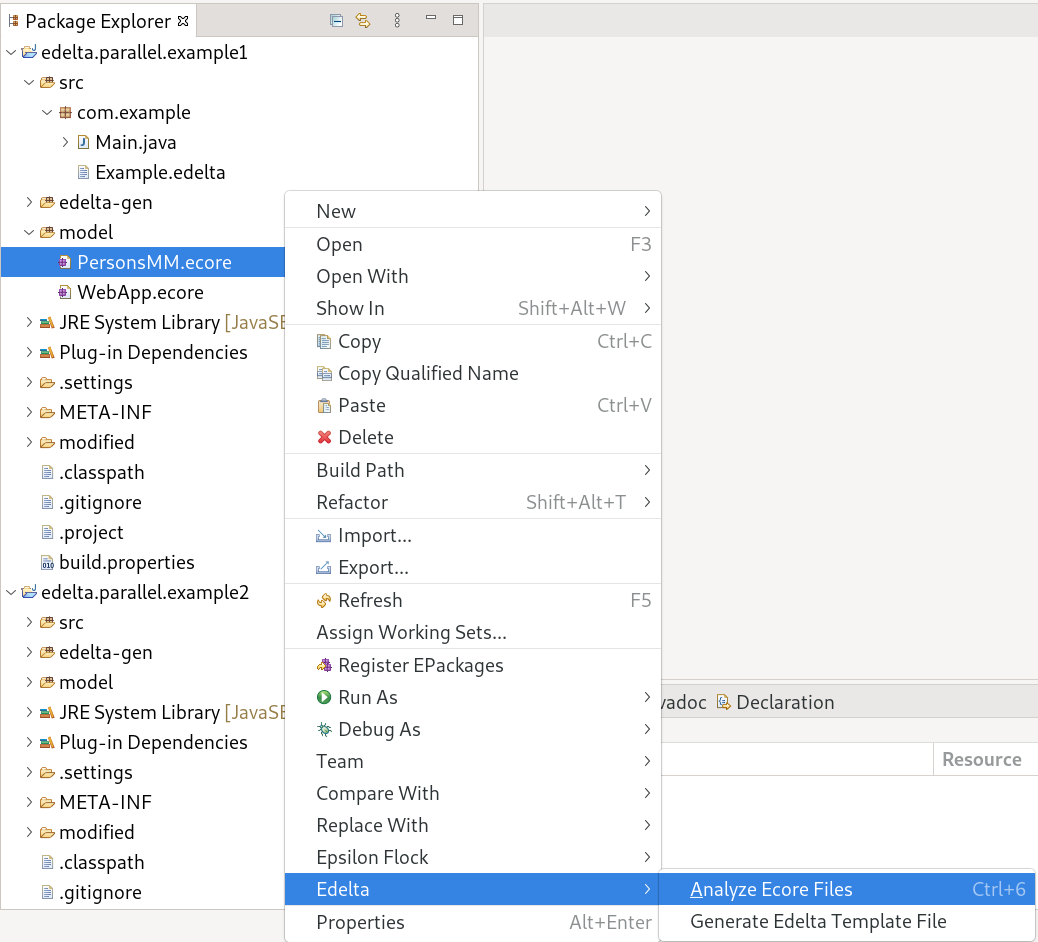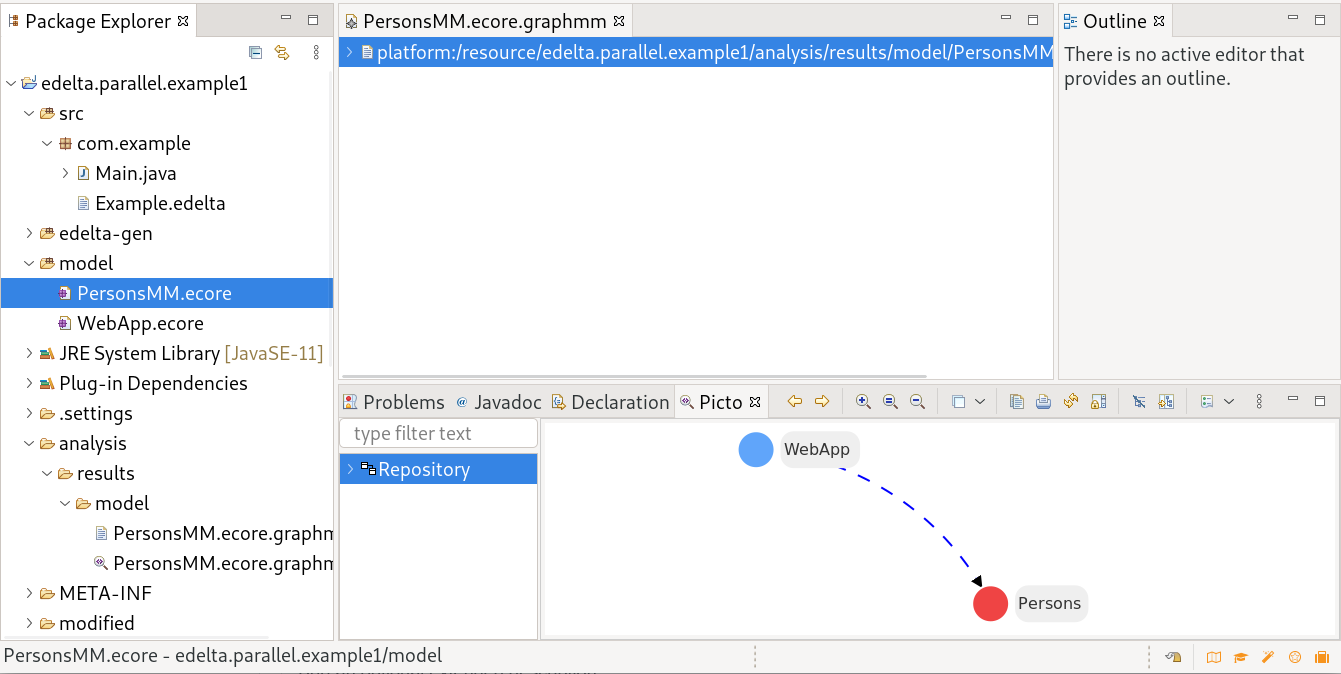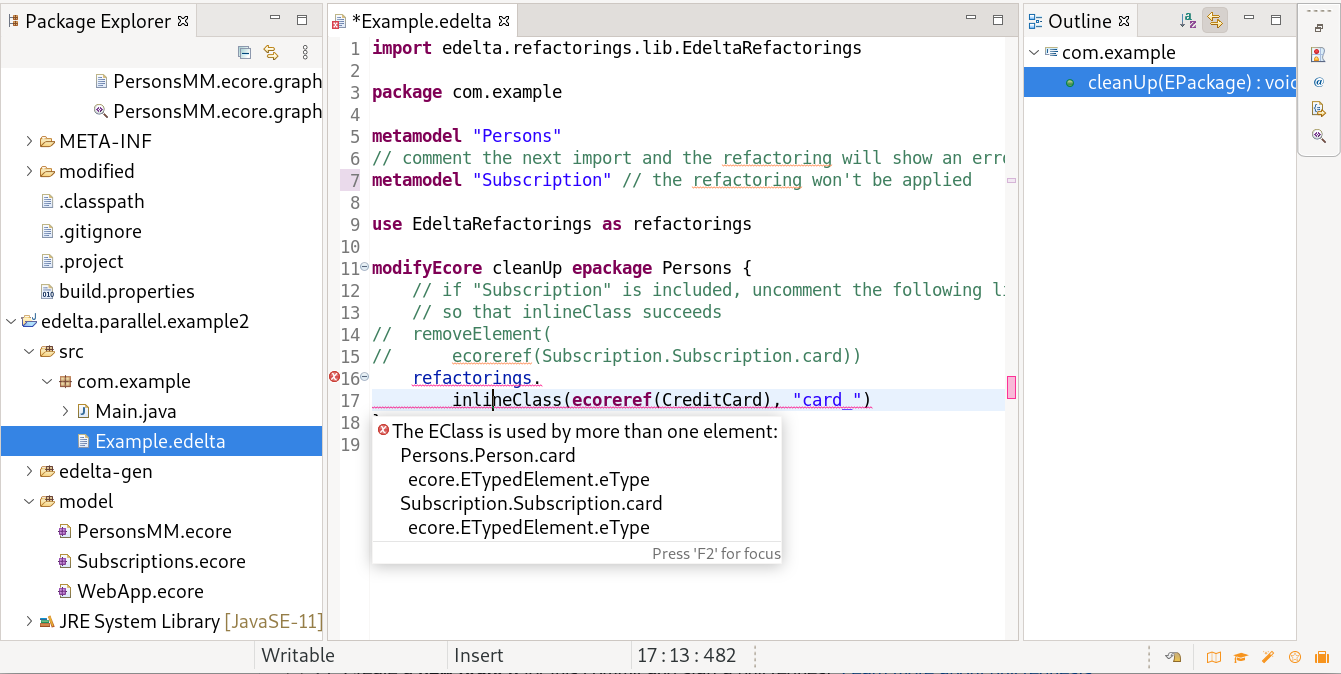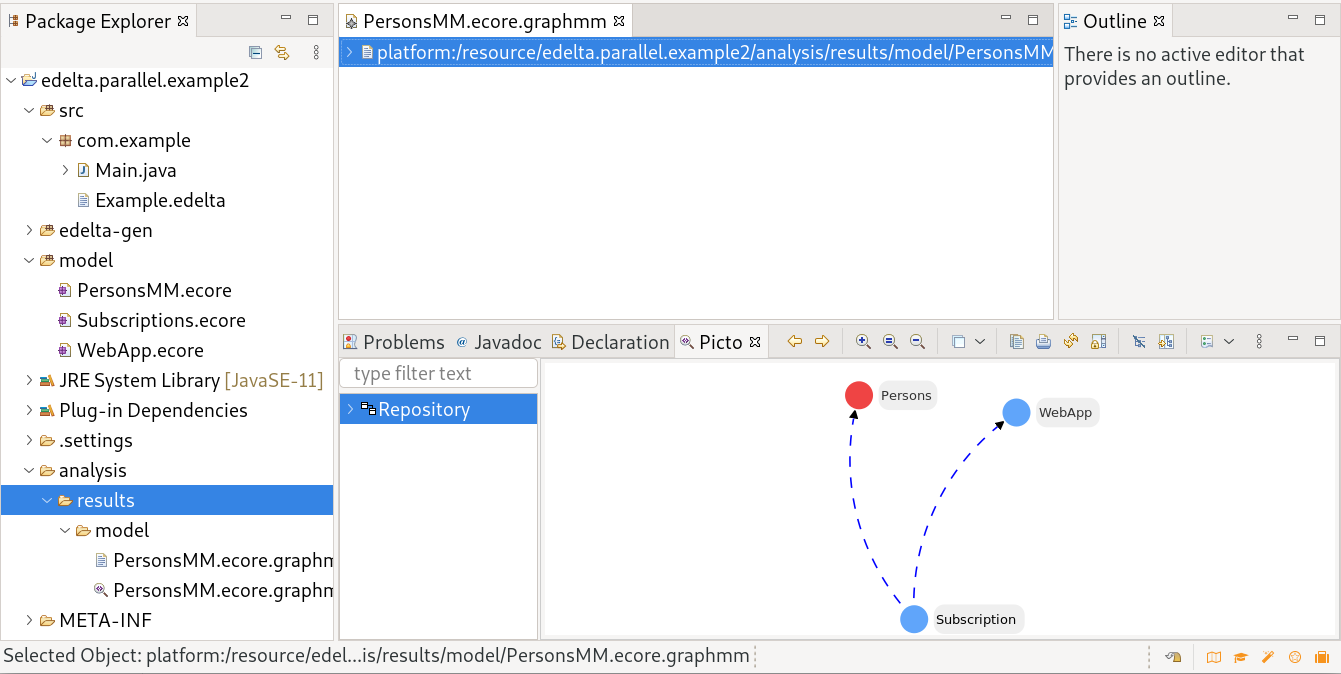Some examples of safe metamodel evolution with Edelta.
These are the instructions to reproduce and try the examples.
First of all, Edelta requires at least Java 11.
First of all, download an Eclipse distribution with Edelta installed from here https://sourceforge.net/projects/edelta/files/products (at least version 2.6.0). Unzip the distribution somewhere on your hard disk. (For macOS users: depending on the version of your macOS, when you try to run the edelta.app you may run into an error that says "the application is damaged and can't be opened". This problem can be overcome by running the following command from the terminal (from the directory where the edelta.app is located): xattr -d edelta.app.) Alternatively, install Edelta in your Eclipse distribution using this update site https://lorenzobettini.github.io/edelta-releases/.
Run our Eclipse distribution and choose any workspace location (or accept the default workspace-edelta).
Clone this repository (git clone https://github.com/LorenzoBettini/edelta-safe-metamodel-evolution-examples.git) in your hard disk.
Import the two projects in your Eclipse workspace (Import => General => Existing Projects into Workspace, and select the location where you cloned this repository). Wait for Eclipse to build the projects.
In the first example project, the metamodel Persons (stored in PersonsMM.ecore) has a Dead classifier, NameElement, that is, a type that it is not used by any other type in Persons. By using the Edelta predefined function resolveDeadClassifier, such classifier would be removed from Persons, if it is run only on that metamodel. However, the metamodel WebApp actually uses NameElement (you can inspect the ecore: its classes WebApp and Service both extend NameElement). Removing NameElement from Persons would make WebApp invalid. If both metamodels are imported in the Edelta program, then resolveDeadClassifier would not consider NameElement as dead, since it's actually used by one of the metamodel in the resource set. In fact, from the Outline view above, you can verify that NameElement is still shown in the live preview of the evolved metamodel.
If you remove the metamodel import metamodel "WebApp" from the Edelta program (or comment it, as suggested by the comment) you can verify that NameElement would be actually removed (it disappears from the outline). However, doing that is not safe for WebApp. That's why both metamodels must be imported in the Edelta program:
You can run the Edelta dependency analyzer on PersonsMM.ecore that will show its dependencies (none in this case) and the metamodels in the same folder that depends on it (WebApp in this case). Right click on PersonsMM.ecore and select Edelta => Analyzer Ecore Files:
A graph model will be created (in the directory analysis/results) and the dependencies will be shown in the Picto view: the metamodel on which the analysis has been executed is shown in red:
IMPORTANT: The Picto view renders HTML contents relying on CSS and JavaScript downloaded from the Internet, so you need an active Internet connection while trying this.
In the Picto view, the Repository tree can be expanded and another metamodel can be selected to focus on its own dependencies.
By using the other context menu Generate Edelta Template File, an .edelta file will be generated in the src folder, with all the needed metamodel imports to safely evolve the metamodel. In this example they will be Persons and WebApp for what we said above. The generated .edelta file is only a template: it should be renamed to something else before starting editing it.
The second example is similar. We still have Persons and WebApp but we also have Subscriptions which is a weaving model. In particular, it has a reference to Persons.CreditCard. If could inline CreditCard in Person, but this would make Subscriptions invalid due to a dangling reference. If Subscriptions is imported in the Edelta program, trying to inline CreditCard would result in an error:
Thus, Edelta would statically catch possible future problems during the evolution.
Follow the comments to safely inline CreditCard after removing the reference from Subscriptions.
As above, you can run the dependency analysis on Persons (in this second example project):
